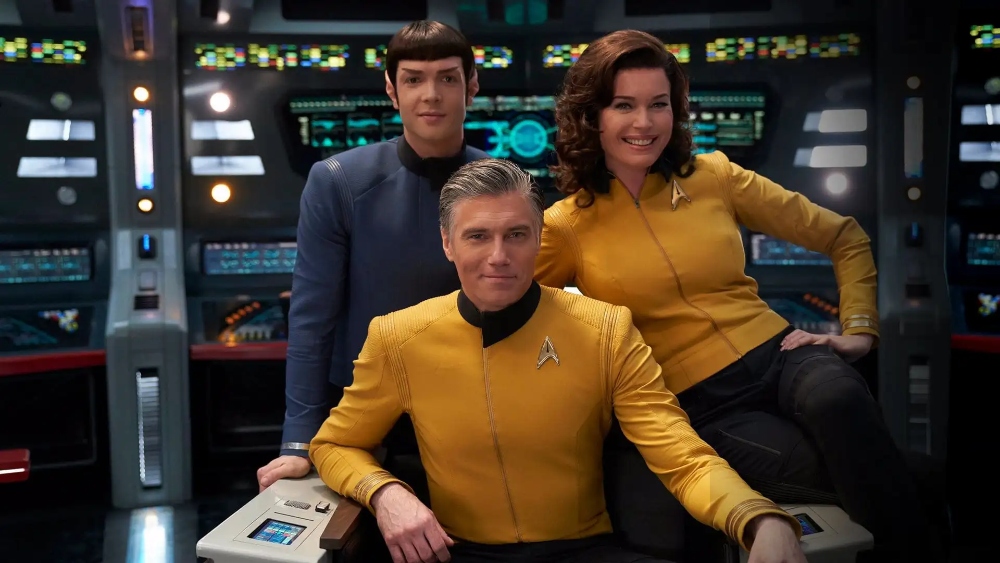
Interviewing Jenny Lumet and Alex Kurtzman is almost as entertaining as their current projects, Showtime’s The Man Who Fell to Earth and the Paramount+ series Star Trek: Strange New Worlds.
Lumet and Kurtzman are longtime friends and frequent collaborators who serve as both writers and producers on the two shows. Kurtzman, of course, is also the current boss of the Star Trek television universe, which includes not just Strange New Worlds, but Lower Decks, Picard, Prodigy, and Discovery, with more in the works via his Secret Hideout shingle. Chatting with them together, one can sense their dynamic. She’s a high-energy talker, reactive, and not afraid to drop an F-bomb or tell it like it is. He’s far more Zen and soft-spoken, choosing his words carefully, and the very definition of a Hollywood diplomat. They get to the same place, definitely in conversation and, apparently, when working, but come at it in different but complementary ways.
Below the Line spent a half-hour speaking with Lumet and Kurtzman and the conversation focused primarily on The Man Who Fell to Earth, which is a sequel to the Nicolas Roeg-directed David Bowie film of the same. It stars Chiwetel Ejiofor, Naomie Harris, Bill Nighy, Jimmi Simpson, and Kate Mulgrew, among others, and its 10-episode first season will conclude on July 3 with the finale “The Man Who Sold the World.” The duo also discussed their collaborative process, contending with the criticism (especially the barbs aimed at The Mummy and, to a lesser degree, Discovery), and their interest — or lack thereof — in making something much smaller in scope than their recent output.
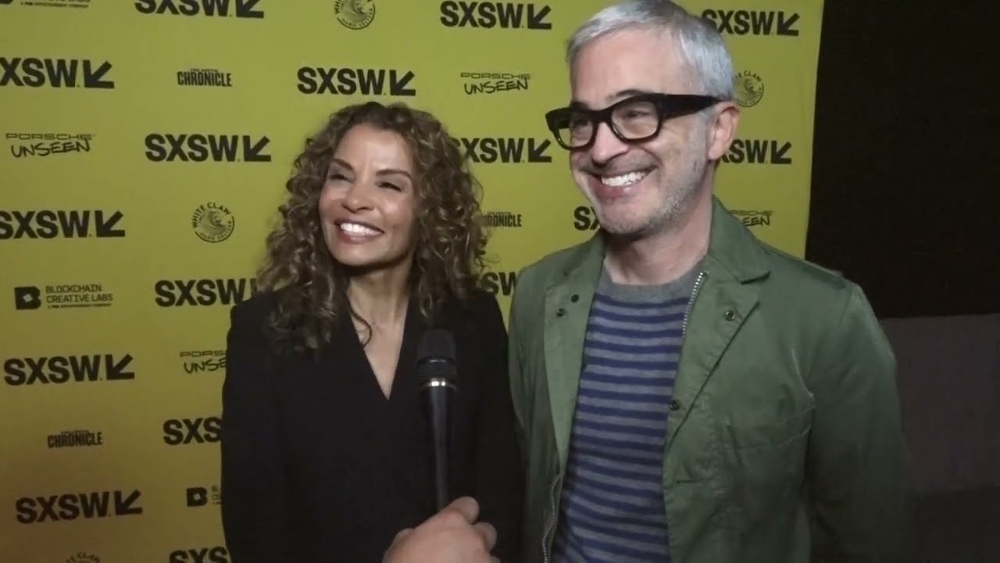
Below the Line: How long have you two known each other?
Jenny Lumet: Our origin story – if we were a universe – is probably unlikely, but not super-exciting.
Alex Kurtzman: Did we meet in 2010 or 2011?
Lumet: No. Well, maybe. I think it was 2008 or 2009 because it was right after Rachel [Getting Married].
Kurtzman: That’s what I was trying to figure out because 2008-2009 was around when Star Trek came out. It had to be right in the middle.
BTL: What is your process of working together? How do you divvy up who does what? And who wins that argument?
Lumet: Wait, you didn’t tell him! There were like no adjectives in our origin story. We met on a general. There was candy. If you have candy on your desk at a general, I’ll be like, “Yeah, I’ll work with you. I don’t care. I’m great.” I had no idea how Alex was because when we met, his office was being built. We met in a trailer on the lot, and it was lovely. I thought, ‘Wow. He’s very curious about human beings, even though all his shows are about aliens.’ That was interesting to me. When we met again, he was in his real office, which was a very impressive and fancy office… but I didn’t get it. I thought, ‘Are we going to be in trouble? Can we go to the right? Where are we?’ We became friends because we started sending cat memes to each other for no reason at all. And, you know this, there aren’t that many people in showbiz who aren’t assholes. I love his family, and he loves my family. It worked out that way. We make each other laugh. We’re funny. Well, he’s funny, sort of, and I’m really funny.
BTL: Alex, you’re unusually quiet…
Kurtzman: Jenny’s right. I found Jenny. I actually sought her out because I’d seen Rachel Getting Married and I was so taken by the film. To me, the star of the film was the writer and I needed to know who it was because it felt so familiar to me. It felt like somebody I knew very well had written it. We did get together on this general, and it was clear right off the bat that, even though we did different things, we would look for the same things in storytelling. That was exciting and heartening. We became good friends, and we started writing together. We do different things in our writing, in terms of who brings what skill set to the table, but over time those things start to mutate into each other. Jenny will always see the characters first. I will see the big picture of the show or movie that we’re doing, and then we come together. We end up converging, and it’s been wonderful. We’ve been doing it now for a long time, and The Man Who Fell to Earth in some ways is that experience for us, where we got to do it in a way that was unfettered.
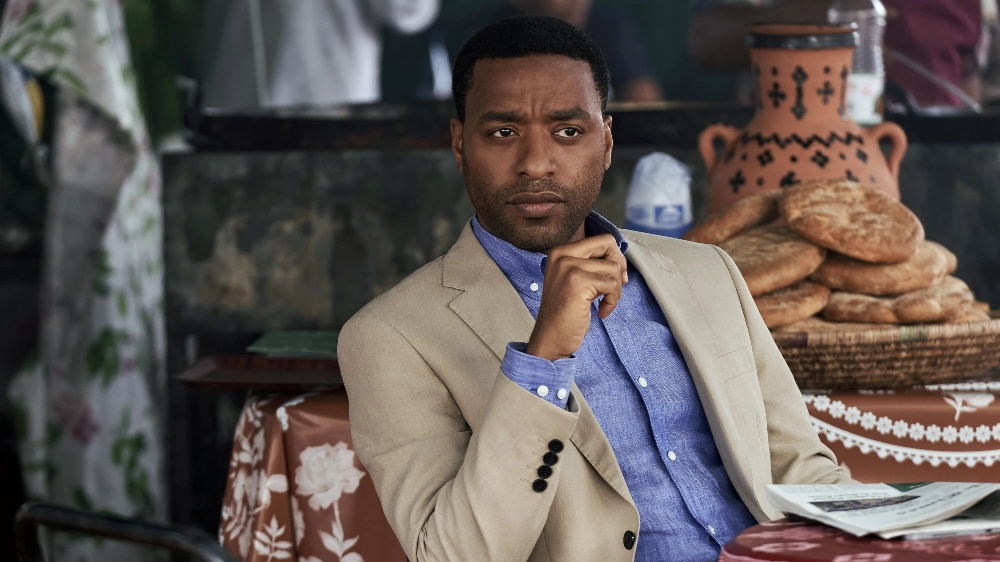
BTL: Why did you choose to tackle The Man Who Fell to Earth?
Lumet: It depends on when you ask either one of us that question. The answer is in Walter Tevis‘ book and in the movie; you can address a million issues that exist right now. As writers know – and this is not a secret – if you want to talk about something big, you have to write small. No one wants a story about the terrors of climate change, but you do want a story about a little girl planting alien seeds on her planet… because that’s tiny. All that said, I responded immediately. Alex took about 10 minutes. Within the partnership, we know that if either one of us needs too much convincing it’s not a good idea. My answer is that I was probably going through stuff in my personal life, dealing with loss, and how the planet felt new. I really think that. Then, a couple of months later, I thought maybe I’m writing about single mothers because I’m a single mother. My mom’s a single mother, her mom was a single mother, and her mom was a single mother. Maybe I wanted to write a big thank you to single mothers. I don’t know. I guess that’s the magic part, why something smacks you in the head.
BTL: Alex? What took you the extra 10 minutes?
Kurtzman: When either of us is excited about something, that tends to be a big marker for the other that it needs to be paid attention to. I could tell that Jenny’s yes was so instant that I was like, ‘Okay, wait a minute. What are you feeling there?’ It was the opportunity to write about all of the things that we found confusing in the world, and the things that we’re seeing around us; to use science fiction as a prism… which is what science fiction does, right? You’re not writing about the future. You’re writing about the present, and that was exciting to us. It’s also clear and unfortunate that Tevis’s novel is so timely, and keeps being timely generation after generation. I think that in some ways, whereas then he was predicting a future, it feels like that future is here. Once again, it felt like the perfect time to revisit the story.
BTL: And it must have become even more timely given that you shot this during a pandemic…
Kurtzman: It was unexpected. We were writing about our own personal experiences, but then, about a year into the writing phase, the pandemic hit, which amplified everything that the story was about. We weren’t looking to be writing about the zeitgeist, but it just so happened that that’s what ended up coming down.
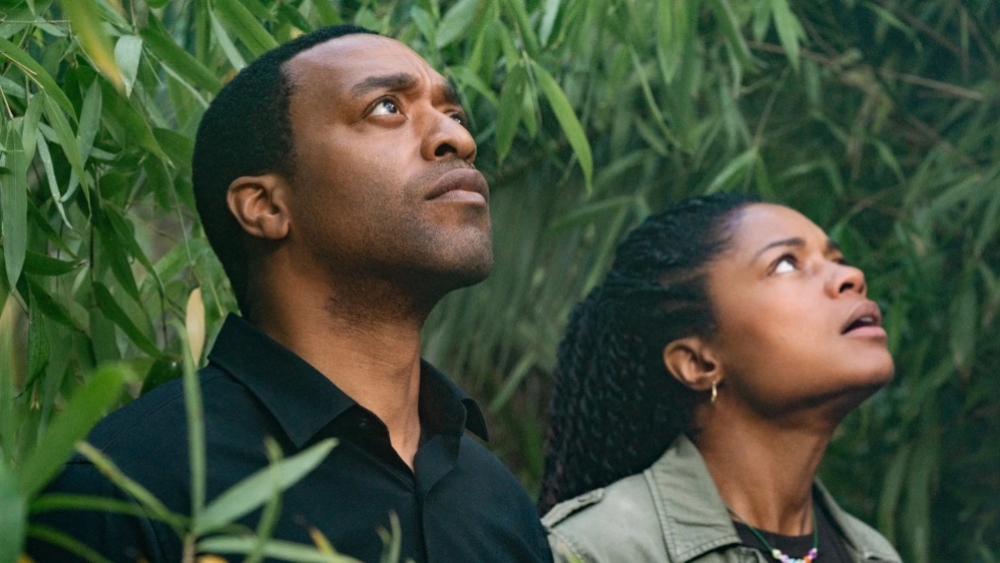
BTL: One takeaway from the book, and also from the Bowie movie that carries over to your show is that being human isn’t so bad. How important was it to make sure you gave people hope along with the grief, and peace along with the horror?
Lumet: I’m 100% Team Human. I believe in human beings. People are having babies, starting businesses, looking for jobs, and doing something as small as planting a garden. That means that there is a future, and it’s optimistic. There is hope. People are planning for stuff. I don’t believe that our children are doomed. I don’t. I believe our children are active and activated. It’s so funny. I don’t want to watch a show that wags a finger at me and tells me what I’m doing wrong, like an “Eat your vegetables” show. I don’t want to watch a show that says it’s all bleak, because we’ve been around for a while. There are folks who always say, ‘This is the end of human beings,’ yet here we are. People are still writing songs. A friend of mine was in Australia, and we spoke to each other. He said, ‘I’m calling you from tomorrow. We made it another day.’’ I was like, ‘Yes!’ I have hope.
Kurtzman: Writing this kind of thing only affirms that more and more because there are days, certainly, where we felt hopeless and then could anchor back to the work to remind us why we shouldn’t be. I’m not going to spoil the ending, but it presents a pretty holistic 360 view of all the good and bad. It leaves the audience the opportunity to decide for themselves, but we definitely tilted toward, in our own perception of things, the idea that ‘here are all the reasons why humanity is worth enduring.’
BTL: Fans and critics have crucified you for The Mummy. There are some people who didn’t…
Lumet: Hold on a second. I wrote on The Mummy. I would like those fans and critics to come to my… can I curse?
BTL: Sure.
Lumet: Okay. They should come to my fucking house and they can write a fucking blockbuster. Tell them to fuck off and call me.
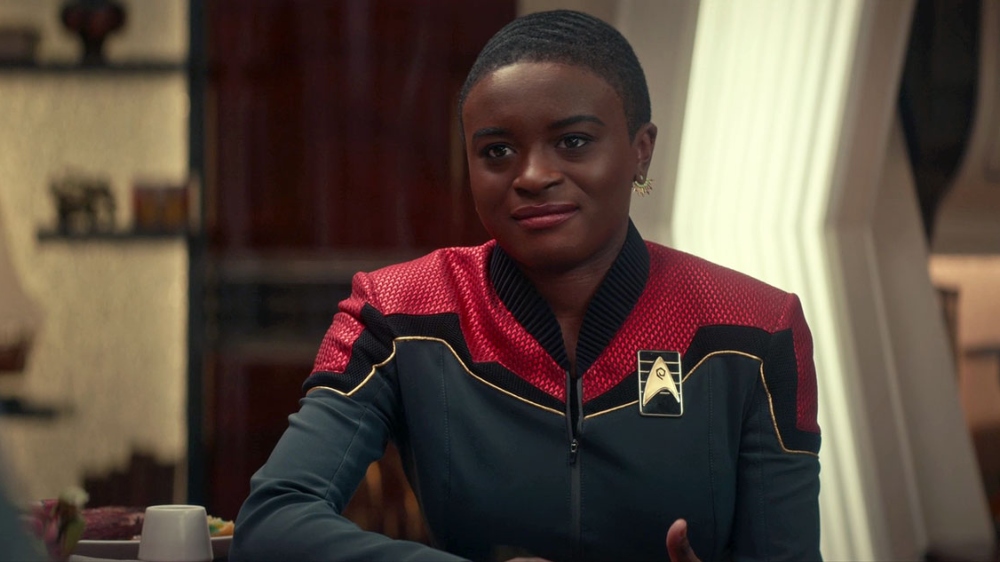
BTL: The question is this… Alex, you also took some heat for Star Trek Into Darkness and Discovery. There are people out there who love Discovery and some who don’t, and there are some who didn’t, but do now. Strange New Worlds has been pretty much universally embraced. You guys are getting great reviews and ratings on The Man Who Fell to Earth. How hard is it to not take criticism too personally? And, for both of you, what do you learn from it?
Lumet: Before you answer that, can I say one thing about Trek that I saw online? When I say online, I mean on Facebook, because I’m old?
Kurtzman: Yeah, sure.
Lumet: Okay, it’s the greatest thing ever. (The Facebook post said), ‘We all know Trek is a restaurant. Trek is a restaurant that you will always love. You might not like everything on the menu, but there will always be something that you will love. And, by the way, don’t be a dick to the staff.’
Kurtzman: Who was that? That was awesome.
Lumet: I don’t know, but it was so cool. I was like, ‘Yeah, that’s right.’
Kurtzman: It’s no secret that genre fans are vocal about the genre that they love, be it science-fiction or fantasy. That’s okay. I’ve learned, in my experience writing Trek, to apply something to [the] genre in general. Part of being a Trekkie is the debate itself. People love to debate what they love and what they don’t. As Jenny said, there’s something on the menu for everyone. That debate is a healthy democracy, in my mind, and I appreciate it. You always take some of it personally, but you also try and listen to what you can take constructively from it. Sometimes somebody will say something that will resonate as being true for you, and if it is true, then you go, “Okay, where did I fall short? What lessons do I apply to the next thing?” Equally, there are many people who love it, and you go, “Why? Why did they love it? What did we do right, and why did it land?” I look at it as a continuum, honestly, and I don’t see it as a good or a bad thing… criticism. It’s part of what comes with the territory.
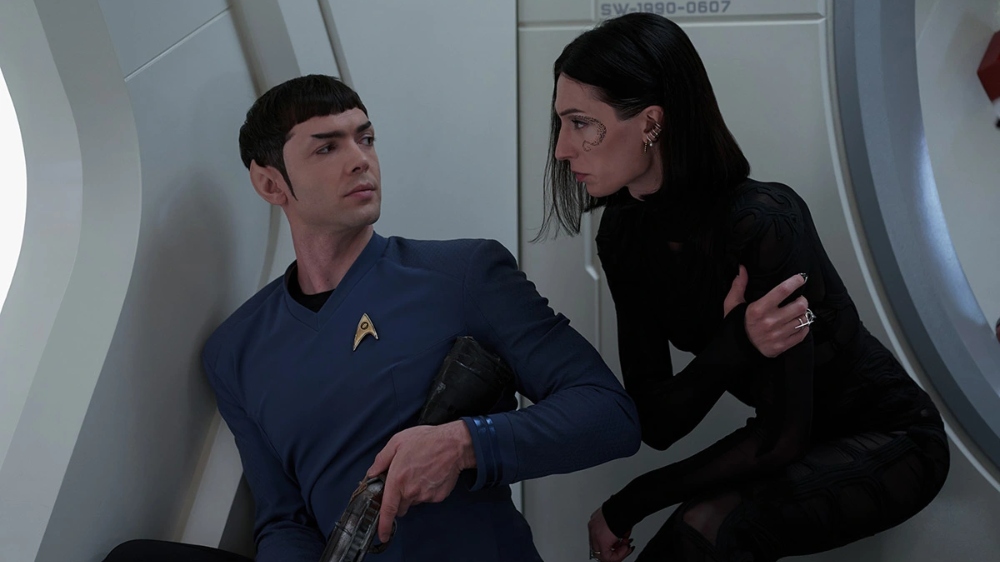
BTL: Jenny, when are you going to direct? Alex, what makes you say, “I’m going to direct this”?
Lumet: I will never direct anything because it is the worst job ever. Nobody leaves you alone. Everybody asks you a question. You cannot swing a dead cat without somebody needing something from you. I will be social and I will be out in public for a little bit, and then I have to retreat back into my cave. I’m a good-natured agoraphobe. Too many people, needing too many things. I can’t imagine going into the mix. I can’t imagine going into the color correct. I would rather cough up a lung. I like being a writer and handing over my stuff.
Kurtzman: I love all the things Jenny said she doesn’t like, which is actually another reason why we’re great partners. When I’m doing those things, somebody still has to keep all the trains moving, and that’s Jenny. For me, at this point, a big part of my criteria for choosing is, “First of all, is it going to scare me?” That is a good question because it means you have room to grow somewhere. You’re going to open up some parts of yourself you haven’t explored yet. You’re going to challenge yourself. But the simple truth is, “Did I connect to it emotionally?” It comes down to that. Also, “Is it a canvas that I want to paint on for a minimum of a year or two?” That’s how long it will take to do it. You have to be honest with yourself about that.
On [The Man Who Fell to Earth], Jenny and I had such an incredible time writing it. It was challenging. We went down both wrong and right roads. When you go through an experience like that, you’re like, ‘Wow, we fought so hard to bring this into the world, and now I want to protect it.’ I felt so inside it because I was writing with a mind toward directing it. It seemed like an inevitability to me, whereas there are other things I’d be more than happy to write on but would have no interest in directing.
BTL: Last question. Do you ever want to write about two people in a room talking, without having massive special effects involving a ship or a planet? Or is that really what you’re doing anyway?
Lumet: In my mind, that’s all we do, and the fact that it’s in outer space has nothing to do with anything. We’re writing stories about families and humans — or in the case of The Man Who Fell to Earth — non-humans who are joyful, lonely, have lost their keys, or are putting a Lego set together. That’s what it is. If that stuff isn’t there, the other stuff doesn’t work. Today’s viewer, I don’t think you can throw them with the shot anymore in a way that you could in a certain time of filmmaking and television production. What works is human contact, love, accessibility, and recognizing yourself in whoever it is that you’re seeing on the screen. ‘I was lonely like that.’ ‘I was joyful like that.’ ‘I was hungry like that.’ That’s been all of us. When I’m writing with Alex, when we are alone and writing, (what we’re writing about) is simply two people in a room. Whether or not they have tentacles comes after.
Kurtzman: Jenny’s right. For us, The Man Who Fell to Earth is about all these tiny moments between the characters. We didn’t know what the soul of the show was until we figured all those things out. Everything else came afterward. “What did Anthea look like?” Those are conversations that were born from, ‘What story are we telling? What are the needs of the characters? What did Faraday bring with him from his planet, emotionally and physically? How does that impact his perception of Earth?’ You work backward from there to create a visual environment. So, it’s never starting from the big picture. We never work from the outside, in. We work from the inside out. I don’t know how to do it any other way. It’s easy to perceive that that’s not how we do it, because science-fiction, or a genre of any kind, always paints on such a large canvas… but it’s not. That’s never how we approach it. I wouldn’t know how to. I wouldn’t actually know what to say about the design of something unless I understood how the characters were supposed to inhabit it.





